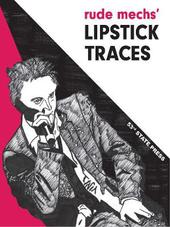
|
Rude Mechs' Lipstick Traces
Paperback / softback
Main Details
| Title |
Rude Mechs' Lipstick Traces
|
| Authors and Contributors |
Adapted by Lana Lesley
|
|
By (artist) Lana Lesley
|
|
Dramatized by Rude Mechs
|
|
Original author Greil Marcus
|
| Physical Properties |
| Format:Paperback / softback | | Pages:80 | | Dimensions(mm): Height 254,Width 215 |
|
| ISBN/Barcode |
9780981753324
|
| Classifications | Dewey:741.5973 |
|---|
| Audience | |
|---|
|
Publishing Details |
| Publisher |
53rd State Press
|
| Imprint |
53rd State Press
|
| Publication Date |
19 September 2019 |
| Publication Country |
United States
|
Description
1534: John of Leyden proclaims himself the Favorite of Heaven, runs naked through the streets of Munster, Germany, and forms a society free of laws or private property. 1976: John Lydon proclaims himself an "antichrist," helps launch a movement to "destroy passersby," and permanently changes popular culture. Coincidence? In Lana Lesley's graphic adaptation of the Rude Mechs' stage adaptation of Greil Marcus's text, Dr. Narrator and the Sex Pistols' manager Malcolm McLaren recount an alternative history of the 20th century via the Sex Pistols, the Cabaret Voltaire, the May '68 riots, and a handful of medieval heretics. Lipstick Traces is a graphically gritty and intellectually nervy rendition of a theatrically irreverent and physically ecstatic production of a history of "movements in culture that raised no monuments...movements that barely left a trace."
Author Biography
Since 1995, Rude Mechs, an ensemble-based theatre collective from Austin, Texas, has created a genre-averse slate of original theatrical productions peppered with big ideas, cheap laughs, and dizzying spectacle, receiving over 180 local and national awards and nominations for their work. Lana Lesley is the Co-Producing Artistic Director of Rude Mechs. Greil Marcus is an American author, music journalist and cultural critic. He is notable for producing scholarly and literary essays that place rock music in a broader framework of culture and politics. His book Lipstick Traces: A Secret History of the 20th Century examines popular music and art as a social critique of Western culture.
|